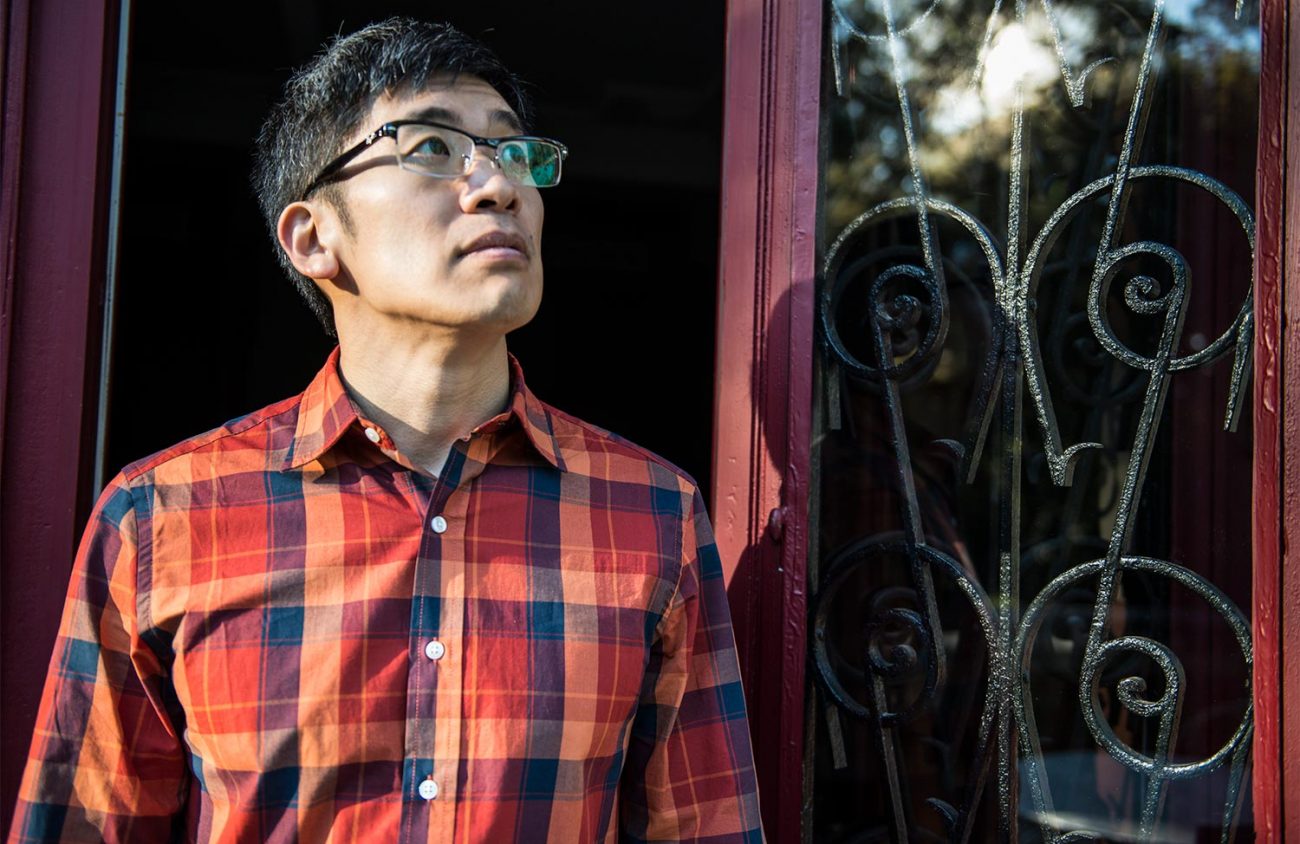Edward Gauvin sits down wearing a black shirt with white capital letters in French reading, “The children of Marx and Coca-Cola” — taken, he says, from the 1966 French film Masculin Féminin.
“The meaning is you get the capitalist influence, mass-market influence, but also communist,” Gauvin says. “That was France in the ’60s. I made the shirt myself because I always liked it.”
Gauvin’s shirt mirrors his career as a French translator –– transcribing interesting and sometimes obscure works with the hope of relating them to at least a few readers.
Gauvin recently received a $12,500 fellowship from the National Endowment for the Arts. This year, Gauvin was the only Oregonian to win the award. With the fellowship money, he will translate a series of flash fiction — short prose stories of a few hundred words — by the late French author and artist Pierre Bettencourt.
Gauvin took interest in Bettencourt because of his eccentric, solitary life as an outsider artist. Bettencourt is also known for being dedicated to his craft as he cranked out stories on a printing press while Nazis occupied his family farm.
“I have been wanting to work on him for a while,” Gauvin says. “He’s got a very small cult reputation in France. Most of his stuff is short or unclassifiable.”
To be considered for the fellowship, Gauvin submitted his own pieces, but also had to advocate and explain his interest in translating Bettencourt’s work.
“The strength of your project is as important as the strength of your translation,” he says. As of now, he has translated 35 flash fiction pieces out of 200.
Despite Bettencourt’s small following, Gauvin is excited to translate his work to English. He says the happiest he has been about feedback is when he’s helped people really understand the writer.
“For me, it’s almost like matchmaking. If you can find one or two readers who have been waiting to read him, that’s great,” he says.
In addition to working on his project for the fellowship, Gauvin has translated a post-apocalyptic graphic novel, the late French cartoonist Gébé’s Letters to Survivors. Gébé was one of the founders of the French satirical magazine Charlie Hebdo.
Growing up, Gauvin did not expect to become a translator. He took French casually in school and wanted to go to France, with little knowledge that the language would become his career. He originally went to France to teach English to college students.
Eventually, Gauvin learned fluent French and began his work translating comics and other literary works.
“The more you translate, the more you realize how vast the possibilities are. No translation is ever finished,” he says.
As a freelance translator, Gauvin usually sits alone at his desk or in a coffee shop while he completes his work. His desk is messy with papers, organized chaos-ish as he describes it, but the comic translations are mostly online anyway.
“I don’t drink caffeine really or have any rituals,” Gauvin says. “I’m suited to being home alone with the text. I want to be a freelancer for as long as I can.”
So wherever he works, Gauvin has a separate screen showing the comic or writing, and uses a laptop to type up the translations before sending them over to a publisher.
Central to Gauvin’s career as a translator is his work with French comics and graphic novels.
“I did read comics as a kid, but I didn’t have a geek crowd to hang out with, so I kinda got shamed out of it for a while,” he says.
When Gauvin went to France, he regained his interest in comics because of their variety of subject matter and genres.
Although comics and graphic novels generally have fewer words, they pose special difficulties to translators. Gauvin has taught himself to eyeball speech balloons so the text can fit. Often, the text has to be cut back.
At the same time, he has to ensure the dialogue and voice stays the same in English as in French.
“Sometimes, puns are tied into the visual, so you have to do a lot of thinking,” he says.
Gauvin and his wife, Nicole Taylor, have an 11-month-old daughter, Anouk.
Moving forward, Letters to Survivors comes out in November. Gauvin also hopes to speak and teach at different conferences, as well as finish the flash fiction by Bettencourt and eventually return to France. Wherever he goes, he will continue to put his voice into French comics and prose.
“You can’t help but put yourself in it. It’s like a cover song, and that’s not a bad thing,” he says.
